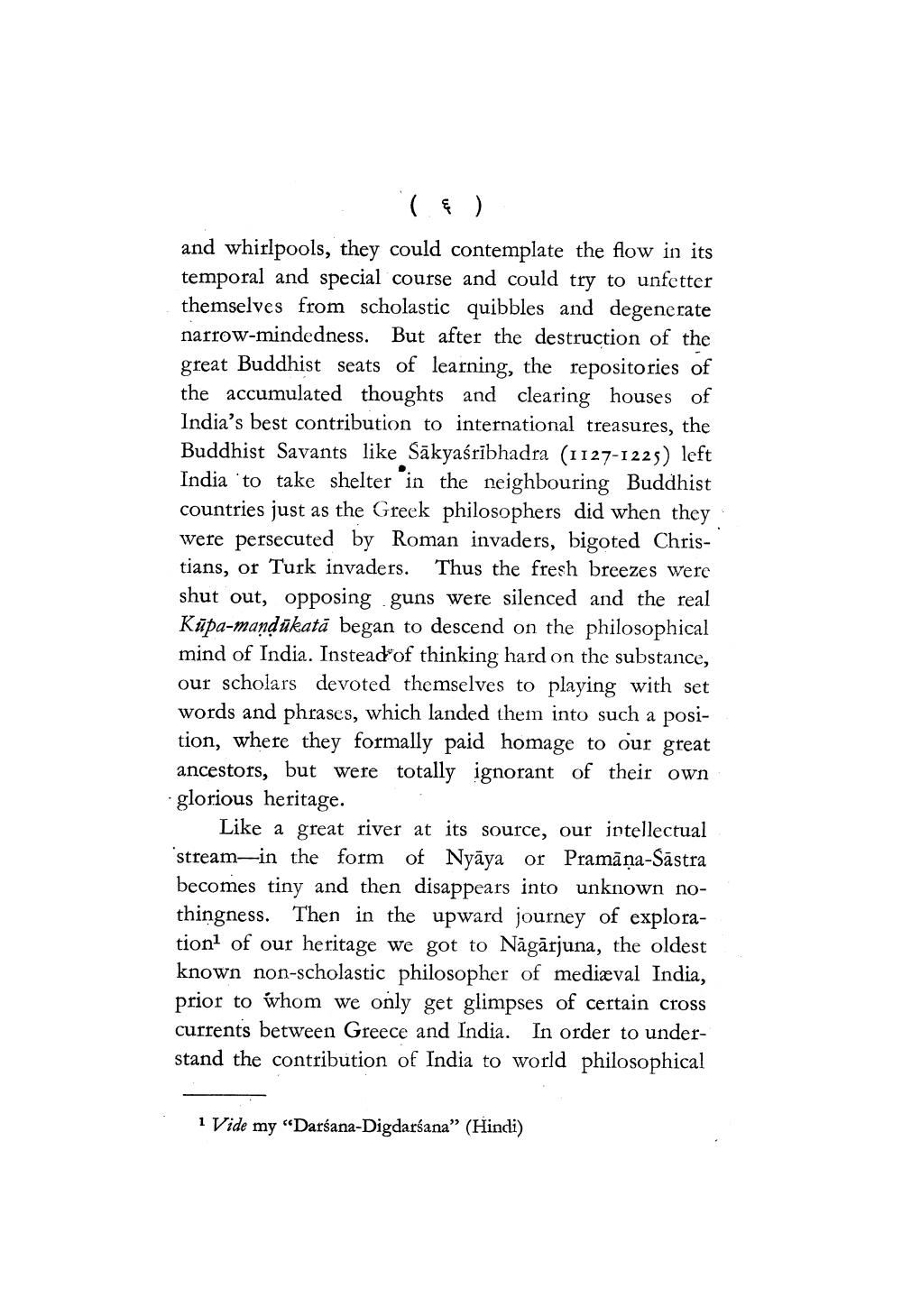________________
and whirlpools, they could contemplate the flow in its temporal and special course and could try to unfetter themselves from scholastic quibbles and degenerate narrow-mindedness. But after the destruction of the great Buddhist seats of learning, the repositories of the accumulated thoughts and clearing houses of India's best contribution to international treasures, the Buddhist Savants like Sākyaśrībhadra (1127-1225) left India to take shelter in the neighbouring Buddhist countries just as the Greek philosophers did when they were persecuted by Roman invaders, bigoted Christians, or Turk invaders. Thus the fresh breezes were shut out, opposing guns were silenced and the real Küpa-mandūkatā began to descend on the philosophical mind of India. Instead of thinking hard on the substance, our scholars devoted themselves to playing with set words and phrases, which landed them into such a position, where they formally paid homage to our great ancestors, but were totally ignorant of their own glorious heritage.
Like a great river at its source, our intellectual stream—in the form of Nyāya or Pramāņa-Šāstra becomes tiny and then disappears into unknown nothingness. Then in the upward journey of exploration? of our heritage we got to Nāgārjuna, the oldest known non-scholastic philosopher of mediæval India, prior to whom we only get glimpses of certain cross currents between Greece and India. In order to understand the contribution of India to world philosophical
i Vide my “Darśana-Digdarśana” (Hindi)




